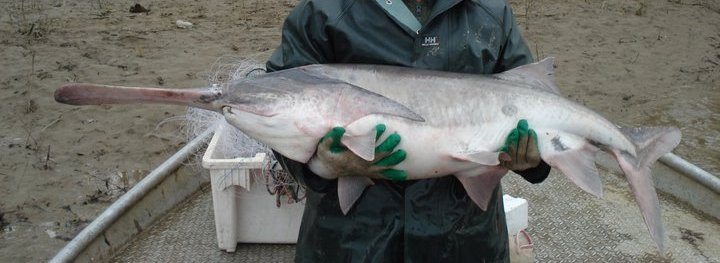
Principles
of Ecology BIO 3800
Biology 3800 is an introduction to the science of ecology, the study of the interrelationships of living organisms with their biotic and abiotic environments. Ecology is the most encompassing and dynamic of the biological sciences as it deals explicitly with the highest levels of biological organization.
Principles of Ecology Lab BIO 3800L
The laboratory portion of this course is designed to provide students with a "hands-on" introduction to ecological principles. Equally important, the lab should also demonstrate techniques for collecting, analyzing, and interpreting ecological data. Students will also gain experience in scientific writing.
Icthyology BIO 4950
Biology 4950 is an introduction to the science of Ichthyology, the study of Fishes. This course is designed to provide students with an introduction into fish biology. Specifically we will address anatomy and physiology, behavior, systematics, genetics and conservation of fishes. This class will provide students with the necessary tools for further study in aquatic biology/ecology.
Fisheries Management and Ecology BIO 4812
Most of the world’s fisheries are fully or overexploited. It becomes apparent that these resources need effective management. This course is designed to introduce students to the field of fisheries management. In this course, we will investigate how to sample fish populations, assess them, and develop management strategies for both sport and commercial populations. Learning will take place through a combination of lectures, laboratories and case studies.
Population Ecology BIO 5208
This course is designed to introduce students to the field of population ecology. In this course, we will investigate how populations grow, interact, and spread. This course is largely quantitative and students will be given the tools to model population growth in both excel and populus using classic models. Learning will take place through a combination of lectures, sample exercises, and case studies.
Biology 3800 is an introduction to the science of ecology, the study of the interrelationships of living organisms with their biotic and abiotic environments. Ecology is the most encompassing and dynamic of the biological sciences as it deals explicitly with the highest levels of biological organization.
Principles of Ecology Lab BIO 3800L
The laboratory portion of this course is designed to provide students with a "hands-on" introduction to ecological principles. Equally important, the lab should also demonstrate techniques for collecting, analyzing, and interpreting ecological data. Students will also gain experience in scientific writing.
Icthyology BIO 4950
Biology 4950 is an introduction to the science of Ichthyology, the study of Fishes. This course is designed to provide students with an introduction into fish biology. Specifically we will address anatomy and physiology, behavior, systematics, genetics and conservation of fishes. This class will provide students with the necessary tools for further study in aquatic biology/ecology.
Fisheries Management and Ecology BIO 4812
Most of the world’s fisheries are fully or overexploited. It becomes apparent that these resources need effective management. This course is designed to introduce students to the field of fisheries management. In this course, we will investigate how to sample fish populations, assess them, and develop management strategies for both sport and commercial populations. Learning will take place through a combination of lectures, laboratories and case studies.
Population Ecology BIO 5208
This course is designed to introduce students to the field of population ecology. In this course, we will investigate how populations grow, interact, and spread. This course is largely quantitative and students will be given the tools to model population growth in both excel and populus using classic models. Learning will take place through a combination of lectures, sample exercises, and case studies.

